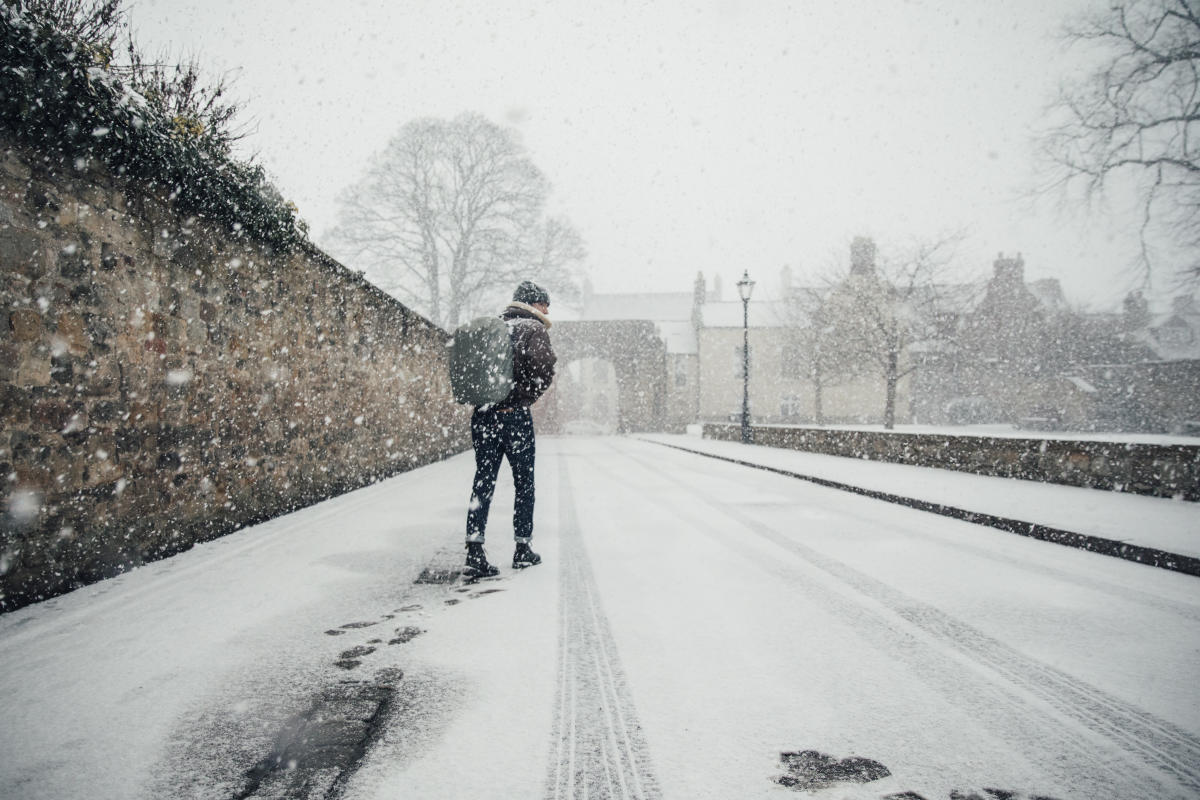[ad_1]
Cold and wintry conditions are sweeping across the UK now, with several yellow weather warnings in place for snow and ice in parts of England, Wales and Scotland.
During adverse weather conditions, accidents are more likely to happen and we become more vulnerable to injuries. The UK Health Security Agency (UKHSA) issued its first amber cold health alert of the season, warning that the weather is likely to “cause significant impacts across health and social care services”.
Dr Agostinho Sousa, head of extreme events and health protection at the UKHSA, said: “It is vital to check in on vulnerable friends, family and neighbours to ensure they are well prepared for the onset of cold weather. Particularly if they are elderly or otherwise at increased risk.”
The Met Office is warning of “a chance of injuries from slips and falls on icy surfaces”, as well as possible travel delays due to disruption on the roads and public transport.
While the weather warnings for snow and ice don’t cover the whole of the UK, temperatures are also set to plunge on Wednesday 20 November, with the Met Office predicting daytime temperatures in the low single figures for most, dropping to below zero at night.
If you have to be out and about during this period of cold, icy weather, these are the most common injuries that can happen and how you can avoid them.
Slips and falls
Wearing the right shoes will help you avoid slipping and falling in icy and snowy conditions. (Getty Images)
When there’s ice on the ground, the risk of slipping and falling becomes much higher. There are a few things you can do to reduce this risk and protect yourself from injury, including:
-
Take extra time to plan the best route to your destination and avoid rushing
-
Wear suitable footwear, such as boots or trainers with rubber soles
-
Use handrails where you can
-
Take small steps and keep both hands free for balance
-
Avoid carrying lots of heavy bags
Driving-related injuries
Road accidents tend to rise in number during hazardous weather conditions, like rain and snow. These lead to an increase in injuries – and some can be severe.
According to research by Churchill Car Insurance, there were 4,631 car accidents in the rain over the last two years, equivalent to 16 injuries for every rainy day across the UK.
Driving in hazardous weather conditions can lead to accidents and injury, some of which may be severe. (Getty Images)
To avoid accidents and injury while on the road, Alex Borgnis, head of car insurance at Churchill, urged drivers to “take care and adapt to wet weather conditions on the road”.
“Additional surface water can result in aquaplaning, which, when combined with poor visibility can make driving extremely dangerous. Reducing speed and increasing braking distances can give drivers extra seconds to react and has the potential to prevent a serious accident.”
Hypothermia
In very cold conditions, some people may be more vulnerable to hypothermia. According to the NHS, you can get hypothermia if you:
-
Do not wear enough clothes in cold weather
-
Stay out in the cold too long
-
Have wet clothes and get cold
-
Live in a cold house – older people living alone are particularly at risk
You can avoid hypothermia in cold weather by dressing appropriately and wearing warm layers. (Getty Images)
Hypothermia is caused by a dangerous drop in body temperature below 35C, as the normal body temperature is around 37C. It is a medical emergency and must be treated in hospital.
You can avoid getting hypothermia in very cold conditions by wearing appropriate clothes with enough layers to keep you warm, getting out of cold, wet or windy conditions and moving somewhere warm and indoors if possible.
Frostbite
Frostbite can occur in temperatures below -0.55C and can affect any part of the body. However, the extremities are most likely to be affected – including hands, feet, ears, nose and lips.
Symptoms usually begin with the affected parts feeling cold and painful, followed by pins and needles before the area becomes numb as the tissues freeze. Severe frostbite can lead to the tissue dying, which may need to be amputated.
According to the NHS, you can prevent frostbite by taking precautions during cold weather.
-
Avoid unnecessary exposure to cold temperatures
-
Wear appropriate clothing that protects your extremities, like hats, socks, gloves, and other layers
-
Keep dry and remove any wet clothing as soon as you can
Carbon monoxide poisoning
Making sure you have an audible carbon monoxide alarm is important to prevent carbon monoxide poisoning. (Getty Images)
Public Health England warns that the risk of carbon monoxide poisoning tends to go up in the winter due to malfunctioning appliances.
Carbon monoxide (CO) is a colourless and odourless gas, which makes it all the more difficult to detect. It can leak from gas appliances that are incorrectly fitted, badly repaired or poorly maintained, as well as from flues, chimneys and blocked vents.
Symptoms include:
-
Feeling sick or being sick
To avoid carbon monoxide poisoning, it’s very important to have your heating and cooking appliances checked by a Gas Safe registered engineer to ensure they are working properly and safely.
You must also fit an audible carbon monoxide alarm to help protect you from exposure to high levels of the gas.
Read more about health and wellness:
[ad_2]
Source: www.yahoo.com



